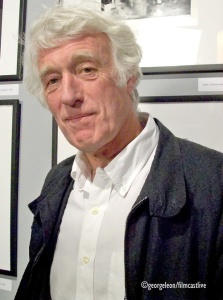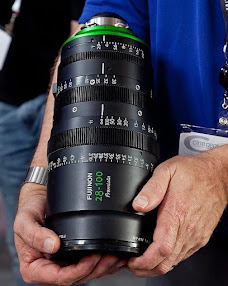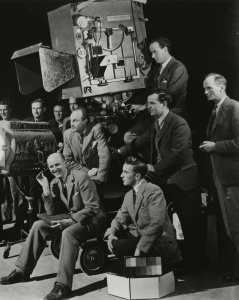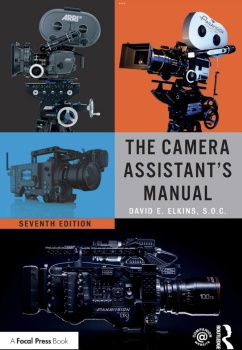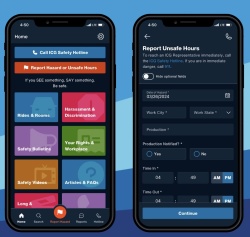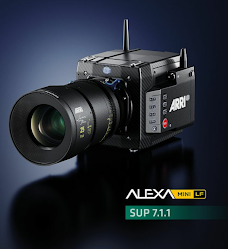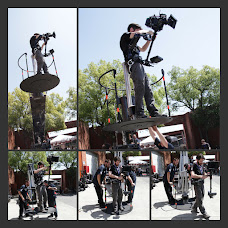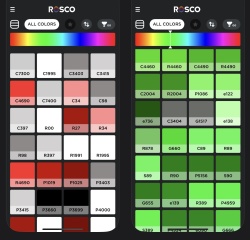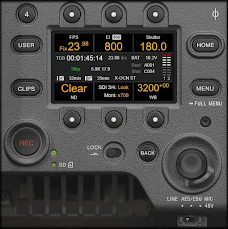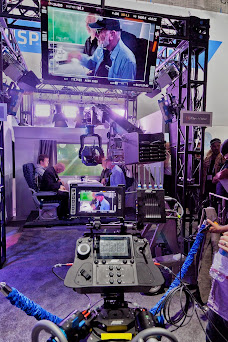MELVILLE, N.Y., October 22, 2013 – Canon U.S.A., Inc., a leader in digital imaging
solutions, announces improvements in the functionality and convenient
operation of the EOS-1D X Digital SLR camera and the EOS-1D C Digital
SLR Cinema camera through new firmware scheduled to be available
starting in January 2014 and November 2013, respectively. Firmware
enhancements for the EOS-1D X Digital SLR camera are designed to provide
photographers with greater creative freedom and speed, especially in
sectors such as sports, wedding, nature/wildlife, and journalism, which
often contain rapidly changing action, sometimes in low-light
environments. Service enhancements for the EOS-1D C Digital SLR Cinema
camera improve lens performance, lens status display, metadata storage,
and audio recording.
“Canon constantly strives to provide our
customers with advanced and innovative technology in our products,”
noted Yuichi Ishizuka, executive vice president and general manager,
Imaging Technologies & Communications Group, Canon U.S.A. “We
understand the daily life of photographers, we listen closely to what
they have to say, and we use their feedback in our constant efforts to
improve existing products and develop new ones. The latest Canon
firmware for the flagship EOS-1D X Digital SLR camera provides better
automation to help photographers fine-tune how the camera operates
moment-by-moment so users can concentrate on creativity and success.
Filmmakers have also requested improved functionality for the EOS-1D C
Digital SLR Cinema camera, and its new update delivers.”
Improved Operability for the EOS-1D X
Developed as the ultimate Canon EOS camera, the EOS-1D X Digital SLR is
designed with foresight that enables its performance to be periodically
improved with new firmware upgrades, helping to ensure maximum
long-term value for owners and users of the camera. These improvements
are engineered to support and advance the evolving creative needs and
business imperatives of professional photographers and committed
high-end amateurs. The features provided by firmware version 2 are
designed for more efficient automation that takes the task of changing
settings away from the “heat of the moment” and enables photographers to
concentrate on creativity and obtaining valuable shots.
Firmware
version 2 upgrades and operability additions include a total of 10
features that are now new or improved:
• AF Performance with
Moving Subjects – For greater creative control, additional parameters
have been added to AI Servo 2nd Image Priority, enabling users to adjust
these settings for more accurate AF performance according to the
situation at hand. Photographers can fine-tune the balance between
prioritizing focus versus the framing rate for the second and subsequent
shots in a burst.
• Enhanced AI Servo AF Performance in Low
Light Conditions – The AI Servo focusing algorithm has been improved to
allow more time for light sampling during AF activation prior to
shutter release, enhancing AF performance in low-light situations.
Additionally, initial AF control is now based on the new “+2 focus
priority” setting of AI Servo 2nd Image Priority, which has higher
distance measurement capabilities under low-light conditions. Upon full
depression of the shutter button, settings from AI Servo 1st Image
Priority take over and then settings from AI Servo 2nd Image Priority
are applied on any subsequent images in the burst. This increases the
probability that the first image in a burst sequence will be as sharp as
possible.
• Improved Acceleration/Deceleration Tracking
Parameters – To improve tracking performance of fast-moving subjects
that fill the frame, additional parameters for acceleration/deceleration
tracking in AI Servo AF have been added to provide photographers with
more precise control when photographing rapidly moving subjects that
accelerate or decelerate quickly or unexpectedly. In response to
feedback from professional photographers, these new settings have been
added to handle larger differences in speed (i.e., the rate of change in
image magnification) compared to the previous firmware.
•
Selection of Initial AF Point While Shooting in 61-Point Auto Selection
AF – This new option in the AF Menu provides more continuity when
switching to 61-Point Auto Selection AF from any other AF Point
Selection mode. The option maintains the AF point selected from the
previous Selection mode as a starting point for 61-Point Auto Selection
AF. It also maintains the ability to change to a pre-programmed AF point
when changing the Selection mode. This time-saving option is designed
to help eliminate the need to stop and think, and helps photographers to
customize their individual shooting style.
• AF Point
Switching According to Camera Orientation – In addition to programming
the EOS-1D X camera to automatically switch to a different AF point and
area selection mode based on camera orientation, firmware version 2 adds
the option of programming only the AF point according to camera
orientation (horizontal, grip up and grip down). This new ability to
select up to three different AF points according to camera orientation
allows for greater customization of the camera to specific shooting
styles.
• Expanded Minimum Shutter Speed in Auto ISO – In
response to user feedback, this improved functionality in Auto ISO
enables photographers to select a minimum shutter speed as high as
1/8000th of a second to freeze moving subjects.
• Exposure
Compensation in Auto ISO with Manual Mode Set – This new function
enables photographers to manually set a desired shutter speed and
aperture, use Auto ISO to control the exposure, and use Exposure
Compensation to adjust the exposure for challenging lighting conditions
(e.g., a very dark or very bright background). This new function can be
activated through the Quick Control Dial or by using the Main Dial while
pressing the SET button.
• Toggling Between Alternate
Camera Settings – EOS-1D X camera users can now toggle between three
groups of camera settings instantly by pressing the shutter button, AE
Lock button [*] or the AF-ON button. Selectable settings that can now be
assigned to the AE Lock and AF-ON buttons via Custom Controls include:
- Currently selected AF point vs. pre-registered AF point
- AI Servo AF configuration sets (Case 1 through Case 6)
- One-Shot AF vs. AI Servo AF
- Currently selected drive mode vs. 14 fps Super High Speed drive mode
With these new options, photographers can reconfigure their EOS-1D X
camera on the fly, while keeping their eye on the viewfinder to maintain
concentration on the shot they are trying to get. For example, the
camera could be set up for One-Shot AF and single shot drive mode on the
shutter button, AI Servo AF in Case 1 with high-speed continuous drive
mode on the AE Lock button, and AI Servo AF in Case 4 with
super-high-speed 14 fps continuous drive mode on the AF-ON button.
• Same Exposure for New Aperture in Manual Mode – This new firmware
feature provides users with the ability to maintain consistent exposure
levels in Manual mode when the aperture changes, for example when a
photographer shoots at maximum aperture with a variable-aperture lens
(such as the Canon EF 70-300mm f/4-5.6L IS USM telephoto zoom) or when
using a lens equipped with built-in extender (such as the EF 200-400mm
f/4L IS USM Extender 1.4X). The feature gives users the option to have
the camera adjust the shutter speed or the ISO to compensate for the
aperture change.
• Display Protected Images Only – Users can
now page through protected images only via an option on the main dial.
This feature already exists with rated images, and is an expansion of
that capability.
Enhancements for the EOS-1D C
A versatile,
self-contained 4K cinema camera as well as a robust still photography
camera, the Canon EOS-1D C will also benefit from a new service update
that further enhances the performance of this unique imaging device.
• EF Lens Communication – The new service update for the EOS-1D C
Digital SLR Cinema camera will enable Canon EF-mount Cinema lenses to
store lens metadata in the video recorded by the camera. Furthermore,
Canon EF-mount Cinema lenses will be supported by Peripheral
Illumination and Chromatic Aberration Correction functions, helping to
improve overall image quality [1].
• Audio Recording – In
response to user requests, audio on the EOS-1D C camera has also been
enhanced. Currently audio recording is limited to a MIC input, but the
forthcoming service update will permit selection of LINE or MIC input,
allowing use of a wider variety of external audio sources.
New Firmware Release Schedules and Installation Procedures
Firmware version 2 for the EOS-1D X Digital SLR camera is scheduled to
be posted on the Canon U.S.A. website in January 2014. Users will be
able to download and install the new firmware on their own, or have it
installed by an authorized Canon Factory Service Center. For more
information please visit: www.usa.canon.com/eos1dxfirmware.
The update for the Canon EOS-1D C Digital SLR Cinema camera is
scheduled to be available November 2013, and will be installed at no
charge as a service upgrade that requires the camera to be sent to an
authorized Canon Factory Service Center. For more information please
visit: www.usa.canon.com/CinemaEOS Firmware Update.




















